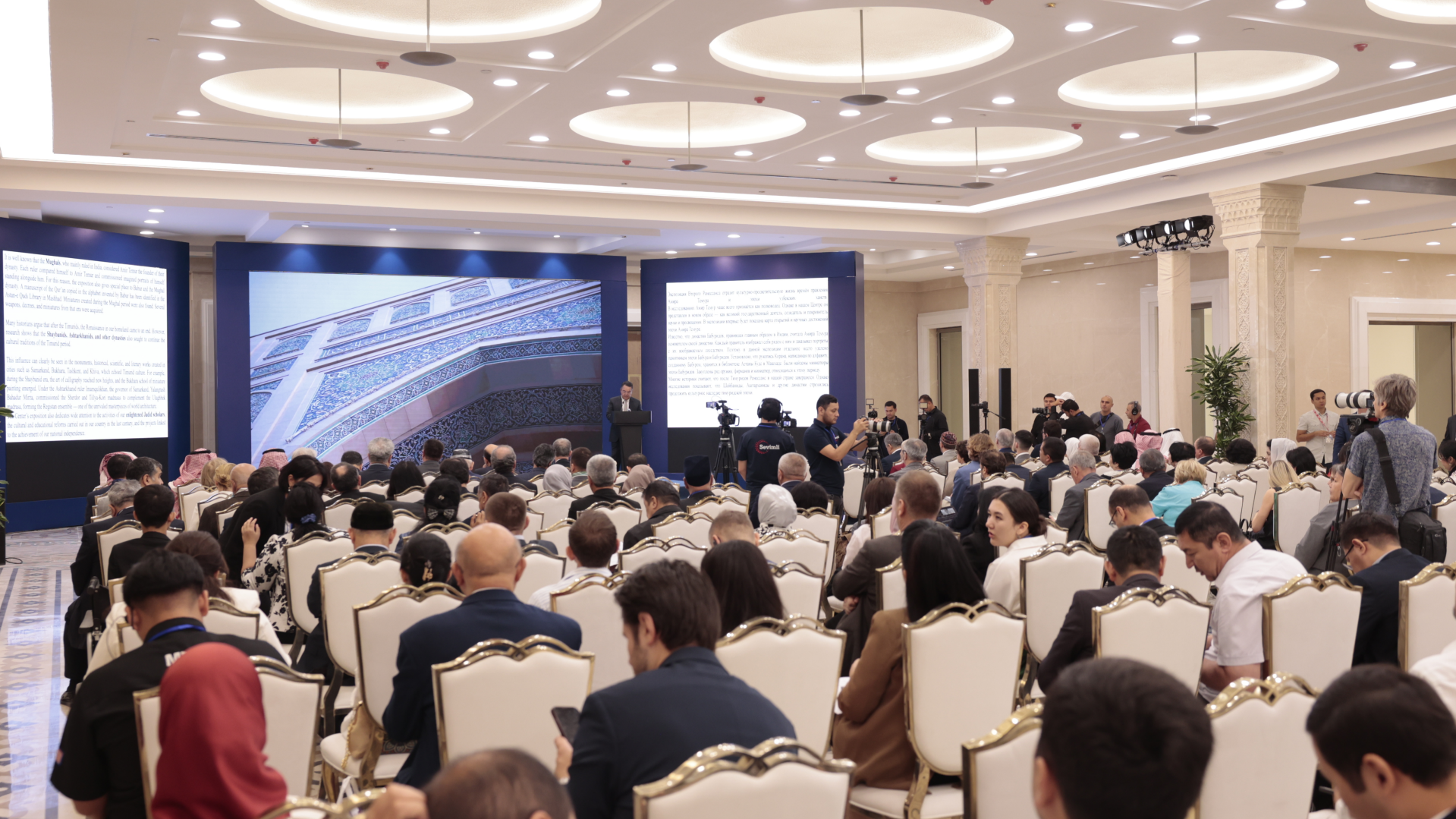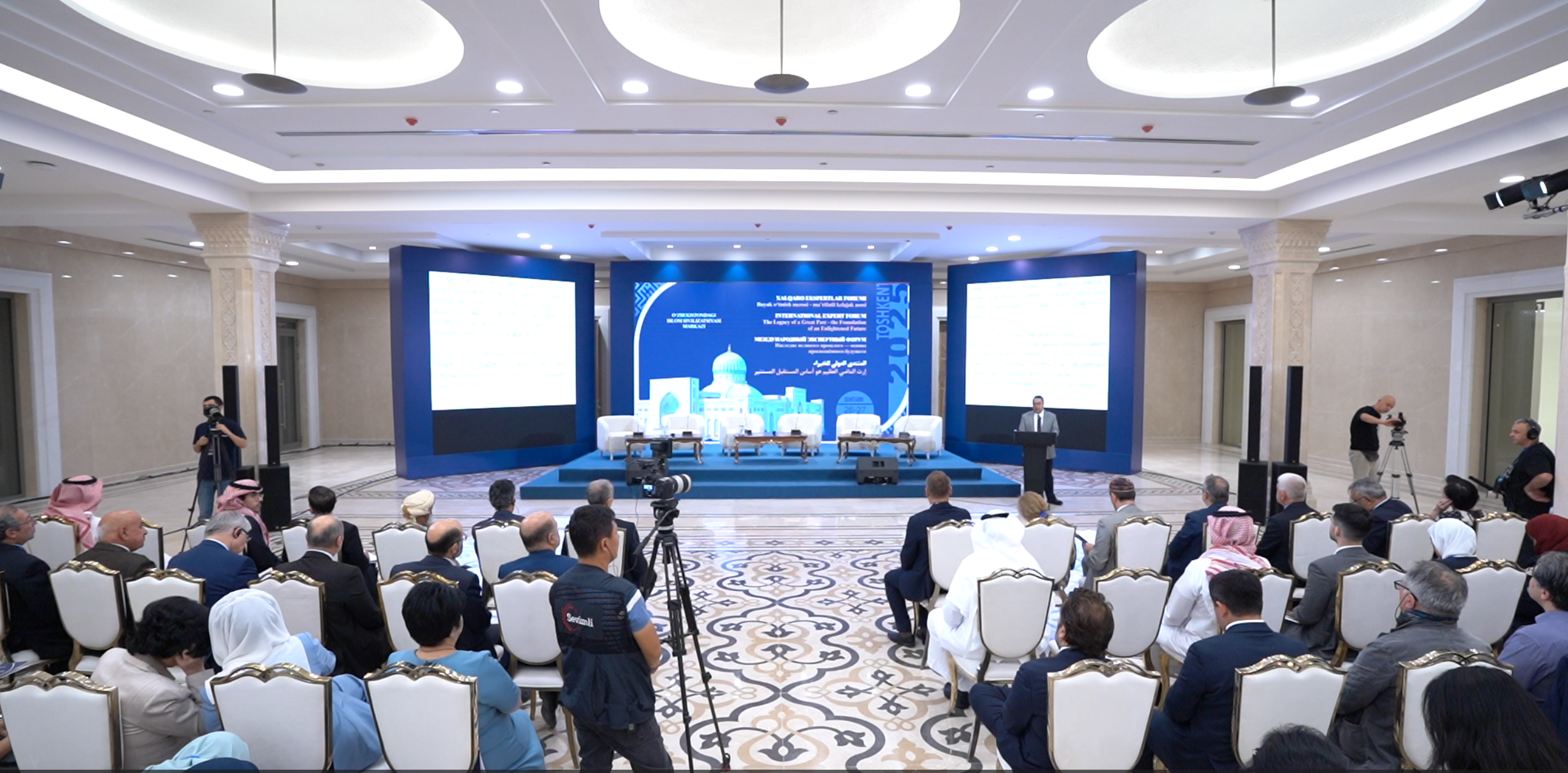“The sheikh, out of fear, threw dust on the Qur’an...”

In the time of Amir Temur, a quatrain by the famous Sufi scholar Abu Saʿid Abulkhayr gained great fame, and stories about its unusual qualities were passed from mouth to mouth. People even recited this quatrain over themselves when they fell ill, using it as a form of spiritual healing, and wore it as an amulet. Later, Khoja Ahror Vali wrote his own qasida entitled Havroiya as a commentary on this quatrain. Here is that quatrain:
Havro ba nazorai nigoram saf zad,
Yak kholi siyah bar on rukhan mutarraf zad,
Rizvon ba ajab bimanadu kaf bar kaf zad,
Abdol zi biyam chang bar mushaf zad.
(Meaning: The houris lined up to behold my beloved. A single black mole cast a veil upon their faces. Paradise itself was left in astonishment and struck palm to palm. The elder, out of fear, threw dust on the Qur’an.)
Amir Temur himself eventually heard of this quatrain.
At that time, the governance of Azerbaijan had been entrusted to Amir Temur’s second son, Mironshah Mirza. However, Mironshah’s growing addiction to alcohol began to affect state affairs. News of his strange behavior reached Samarkand. It was reported to the Sahibqiron that three individuals were responsible for Mironshah’s indulgence in drink. Amir Temur ordered that all three be brought to him and executed. Two of them were captured and executed, but the third Khoja Abdulqadir Maraghi feigned madness and chose a life of wandering.
When the Sahibqiron campaigned in Iraq, it was reported that Khoja was in the area. Eventually, he was captured and brought before the ruler. Khoja Abdulqadir was well known for his beautiful voice, his mastery of music, and his recitation of the Qur’an.
As soon as he was brought into the ruler’s presence, out of fear and not knowing what else to do, he began to recite verses from the Qur’an. Seeing this, the Sahibqiron laughed and quoted the last line of the famous quatrain:
Abdol zi biyam chang bar mushaf zad
(That is, “The elder, out of fear, threw dust on the Qur’an”.)
Although in the philosophical context of the original quatrain this line carried a different meaning, Amir Temur skillfully used it in the right moment a gesture that Alisher Navoi described as “an event that occurs once in a year, or even in a century”.
Rustam Jabborov
P/S: The article may be used provided that the official website of the Center is cited.
Most read

Over 100 experts from more than 20 countries of the world are in Tashkent!

The Center for Islamic Civilization – a global platform leading towards enlightenment

The museum of the Center for Islamic Civilization in Uzbekistan has been further enriched: unique artifacts from different parts of the world have been presented as gifts











